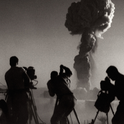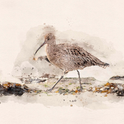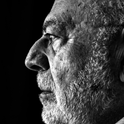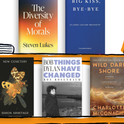The Pursuit of Power: Europe 1815-1914 by Richard J Evans (Allen Lane, £35)
Anyone expecting a dry account of the European balance of power will be in for a pleasant surprise. Richard J Evans’s The Pursuit of Power is a richly woven tapestry depicting a continent undergoing rapid transformation and achieving worldwide hegemony. The politics is deftly explained. But it is seamlessly intermingled with a dazzling range of subjects. In one roller-coaster chapter Evans takes us on a tour of European emotional life, a section that covers weeping, top hats, moustaches, women’s rights, association football, sexuality, religion, beer drinking, nationalism, Darwinism, Impressionism, opera and much more. The narrative nimbly hops from country to country, making comparisons and connections. We are taken to concerts in the 1840s where hysterical audiences fight over Franz Liszt’s handkerchiefs and women try to cut off locks of his hair. Forget Victorian propriety: this was an age of strong, often wild, emotions.
But as the title suggests, the theme that runs through the book is power. “States grasped for world power, governments reached out for imperial power, armies built up their military power, revolutionaries plotted to grab power...” Europeans contested for power over nature and over other peoples, committing monstrous crimes in the process. At the same time, Evans identifies the struggle against power on the part of serfs, workers and women (feminism features prominently) as a defining characteristic of the period. The “sublime self-confidence”—so ably portrayed in this book—that sustained Europe’s rise to global dominance was made possible by a century of peace after Waterloo and shattered by four years of cataclysmic war.
Anyone expecting a dry account of the European balance of power will be in for a pleasant surprise. Richard J Evans’s The Pursuit of Power is a richly woven tapestry depicting a continent undergoing rapid transformation and achieving worldwide hegemony. The politics is deftly explained. But it is seamlessly intermingled with a dazzling range of subjects. In one roller-coaster chapter Evans takes us on a tour of European emotional life, a section that covers weeping, top hats, moustaches, women’s rights, association football, sexuality, religion, beer drinking, nationalism, Darwinism, Impressionism, opera and much more. The narrative nimbly hops from country to country, making comparisons and connections. We are taken to concerts in the 1840s where hysterical audiences fight over Franz Liszt’s handkerchiefs and women try to cut off locks of his hair. Forget Victorian propriety: this was an age of strong, often wild, emotions.
But as the title suggests, the theme that runs through the book is power. “States grasped for world power, governments reached out for imperial power, armies built up their military power, revolutionaries plotted to grab power...” Europeans contested for power over nature and over other peoples, committing monstrous crimes in the process. At the same time, Evans identifies the struggle against power on the part of serfs, workers and women (feminism features prominently) as a defining characteristic of the period. The “sublime self-confidence”—so ably portrayed in this book—that sustained Europe’s rise to global dominance was made possible by a century of peace after Waterloo and shattered by four years of cataclysmic war.












